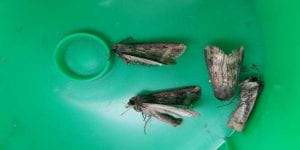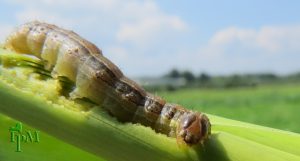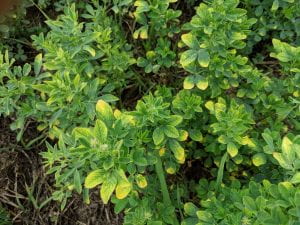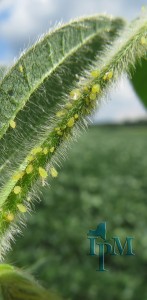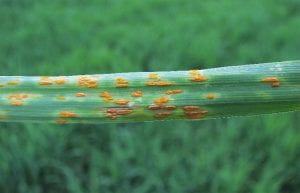NYS IPM Field Crops Pest Report-July 14, 2022
Field Corn Pheromone Trapping Network
Western Bean Cutworm
There have been low levels of western bean cutworm caught across the state in pheromone traps. The peak flight will likely be the last week in July or the first week in August. It is best to start scouting pretassel corn. Western bean cutworm will almost solely lay eggs on pretassel corn in anticipation of pollination and ear development.
Pheromone Field Corn Pheromone Trapping Network Interactive Map
Fall Armyworm
We are monitoring for fall armyworm this season! We have a limited number of traps across the state. So far we have only caught one moth. This may pick up later in the season. Last year we had a lot of damage later in the summer with this insect pest.
Potato Leafhopper in Alfalfa
There were some reports of potato leafhopper (PLH) in alfalfa at moderate populations. Make sure if you are harvesting with moderate to high populations of PLH harvest the whole field. If you only harvest part of the field, it serves as a reservoir for the PLH to infest the smaller plants.
Large populations of nymphs on the plants combined with adult PLH is when you really start seeing yellowing plants. Once you see yellowing the damage has occurred and you have lost yield and quality in the alfalfa.
So scout your fields weekly and avoid damage!
For more information on thresholds and management, view the following video:
IPM for Potato Leafhopper on Alfalfa
Soybean Aphids on Soybeans
There have been reports of soybean aphids in some fields across the state. Some regions of the state have still not found soybean aphids in soybeans. It is best to get out and scout for aphids from the R1-R6 stage of growth. For more information view the following website:
https://cals.cornell.edu/field-crops/soybeans/insects-soybeans/soybean-aphid.
Rusts on Small grains
We have found crown rust on oats in western and central NY. We have also found rust on triticale in Willsboro in Northern NY. Rust can affect the yield of the grain. In Willsboro, the rates on certain cultivars were well over 50% of the surface area of the flag leaf infected. For more information on disease management view the following website:
https://cals.cornell.edu/field-crops/small-grains/diseases-small-grains/disease-management
Stored Grain Insect Pests
Have you prepared your stored grain bins to reduce pest infestations? Sealing holes, cleaning out the old grain, cleaning under the floorboards, and treating the inside of the bin are important. This will help keep the insect pests from entering the bin and damaging the grain. For more information: https://entomology.ca.uky.edu/ef145

